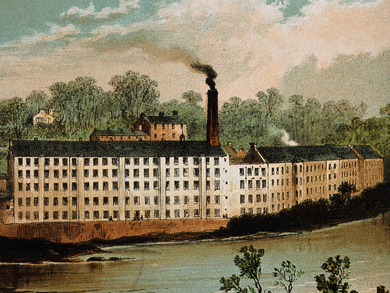Life and Times: Overview

Cite page (MLA): "Life and Times: Overview." Livingstone Online. Adrian S. Wisnicki and Megan Ward, dirs. University of Maryland Libraries, 2018. Web. http://livingstoneonline.org/uuid/node/a7a76aaf-60bb-456e-a0c3-150596f6c7b7.
The "Life and Times" section of Livingstone Online offers users a series of critical essays that discuss Livingstone's life, publications, the age in which he lived, and the ways in which his legacy has been represented and re-represented. The guide below describes each of the pages in this part of the site.
Section Guide
Livingstone's Life & Expeditions - overviews Livingstone’s life and expeditions, starting with his upbringing in Scotland, his early years as a missionary in southern Africa, and the celebrated cross-continental expedition of 1852-56. Also discusses the Zambezi Expedition (1858-64) as well as Livingstone’s final journeys (1866-73), including the 1871 Nyangwe massacre and the famous meeting with Henry M. Stanley ("Dr Livingstone I Presume?"). Closes with an account of Livingstone’s death (1873), followed by the transcontinental transportation of his remains to Britain and his interment at Westminster Abbey (1874).
Livingstone's Posthumous Reputation - examines David Livingstone’s posthumous reputation, focusing on his status as an icon of the British Empire. Overviews the numerous biographies that have taken him as their subject and explores the changing ways in which Livingstone was represented as the British Empire developed and declined.
Publishing Livingstone's Missionary Travels - uses John Murray’s publication of Livingstone’s Missionary Travels and Researches in South Africa (1857) as a case study to explore the role of print and publishers in fostering the fame of nineteenth-century explorers.
Southern Africans and the Advent of Colonialism - provides a summary of the most important historical events and processes relating to the peoples of southern Africa. Also explains the social and political context of the sub-continent from pre-colonial times through to the mid-nineteenth century, when Livingstone first arrived in the region. Concludes with a glossary that defines key terms used in the text.
18th- and 19th- Century European Expeditions - offers an introduction to the development, sponsorship, and goals of European expeditions from the eighteenth to the nineteenth centuries.
Livingstone's Medical Education - sets out a detailed description of Livingstone’s medical education as well as an overview of how his education affected his recording strategies in Africa.
Victorian Medicine - describes the evolving state of British health in the nineteenth century and considers how Livingstone’s perceptions of this health influenced his understanding of Africa and his writings.
Fever in the Tropics - contrasts nineteenth-century ideas (including Livingstone’s own) about fever with modern ideas about the causes and appropriate treatment for fever.









